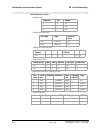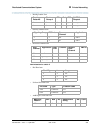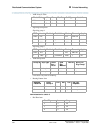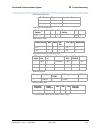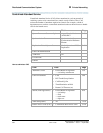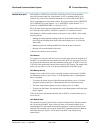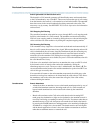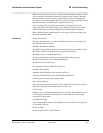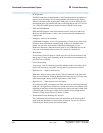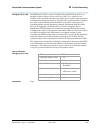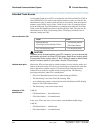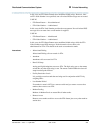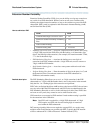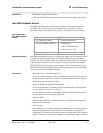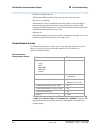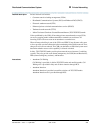
Distributed Communications System B Private Networking
Administration for Network Connectivity
CID: 77730 555-233-504 — Issue 1 — April 2000
342
• DCS Operation
If an RLT trunk group is administered as a DCS trunk, the following interaction
applies: On an incoming CAS call to the attendant, the DCS message displays
instead of the name of the incoming RLT trunk group. Upon answering the call,
the attendant hears call-identification tones, indicating that the call is a CAS call.
Use a TRUNK-NAME button to obtain the name of the RLT trunk group.
• DXS and DTGS Buttons
DXS and DTGS buttons at the main attendant console can be used with CAS.
However, with DXS buttons, it takes a few seconds before the attendant hears
ringback tone.
• Emergency Access to the Attendant
CAS Branch Emergency Access calls generated by a Feature Access Code route
Off-Hook Alert to the branch attendant group. If there is no attendant in the
branch, the call routes to the branch’s administered Emergency Access
Redirection Extension. When the branch switch is in CAS Backup Service, the
calls route to the backup station and the call is treated as a normal call.
• Hunt Groups
If an incoming CAS call directs to a hunt group, the call does not redirect to the
hunt group’s coverage path. Depending on the circumstances, the attendant can
get a busy tone or ringing.
• Leave Word Calling
If a message is left for a branch user and the attendant at the CAS switch tries to
retrieve the message by using LWC message retrieval, permission is denied.
• Night Service — Night Console Service
When the CAS main enters night service, CAS calls terminate at the CAS main
night-service destination. When the branch enters Night Service, CAS calls route
to the branch night console, the LDN night station, or the TAAS.
• Night Service — Trunk Answer from Any Station
In a multiswitch DCS environment with CAS, the result of transferring incoming
trunk calls via Night Service Extension or Trunk Answer from Any Station varies
depending on the home switch of the transferred-to station, the home switch of the
connected trunk, and the type of night-service function chosen (Night Service
Extension, Trunk Answer From Any Station, or both).
• Nonattendant Console Handling of CAS Calls
The CAS branch calls terminate at the CAS main based on the incoming RLT
trunk-group day destination or night-service destination. You can also answer a
CAS call by the Trunk Answer Any Station feature.



